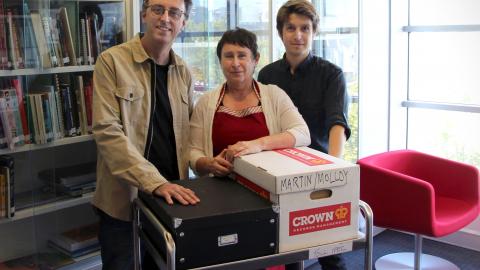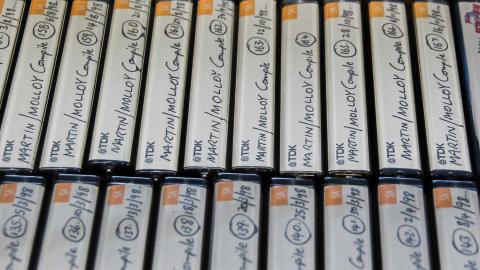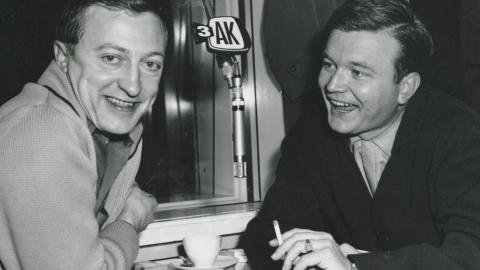
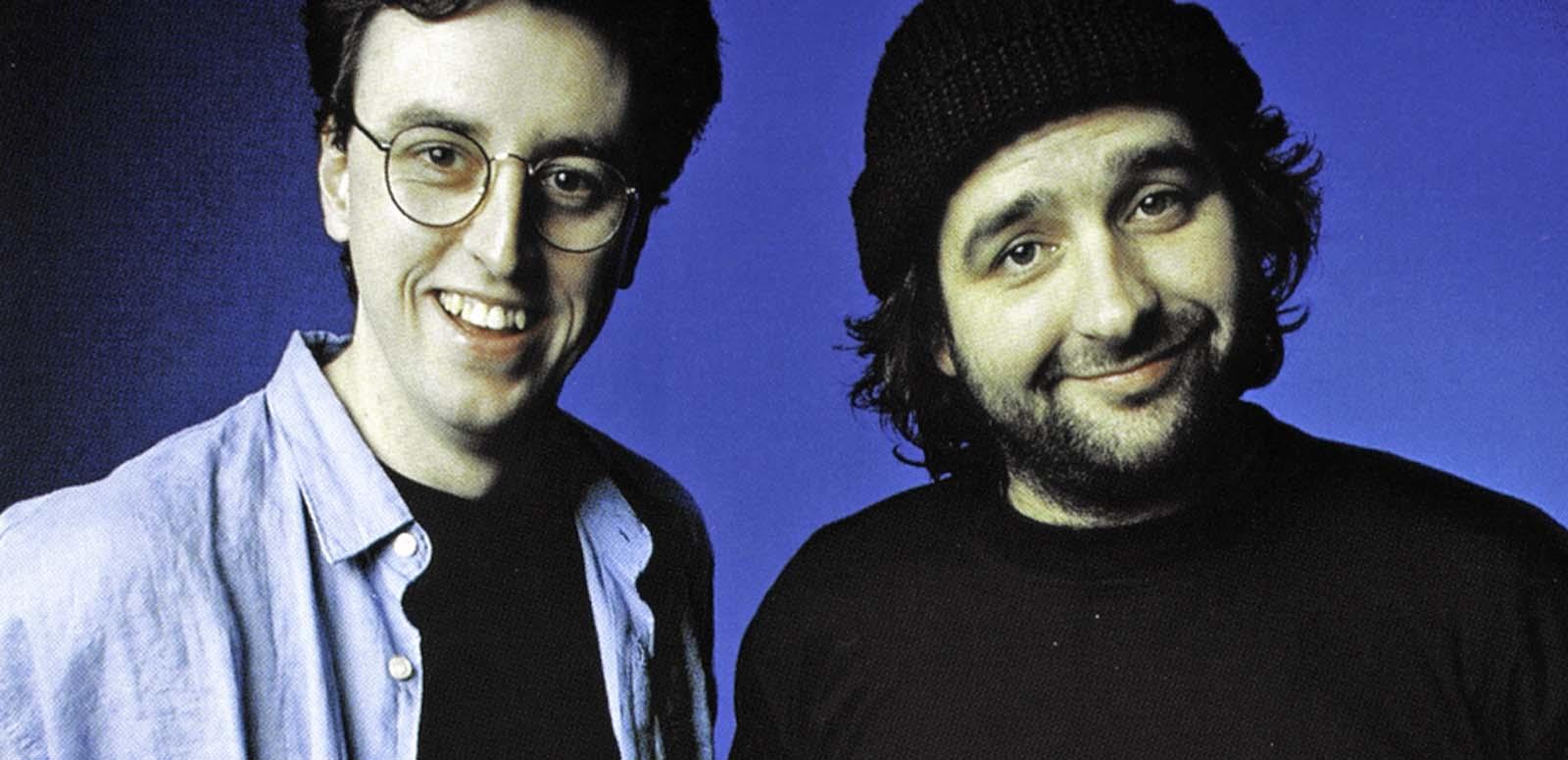
Martin/Molloy
Martin/Molloy: Tony Martin and Mick Molloy comedy radio show
Martin/Molloy was a popular, nationally syndicated comedy radio program broadcast to over 50 radio stations between 1995 and 1998.
Hosted by comedians and former D-Generation and The Late Show co-stars Tony Martin and Mick Molloy, the program achieved record ratings and was hugely influential – Kaizen Media’s Dan Bradley told Radio Today on the show’s 20th anniversary in 2015, ‘Martin/Molloy was the first “talk” show on FM drive, and it was completely revolutionary, so much so that as weird as it seems in hindsight, it was regarded as a risky move by many. These days of course multi-personality-based FM Drive shows are the norm, but Martin/Molloy was the first.’
The program was known for its irreverent humour – a mix of carefully crafted sketches, satire and freeform banter. The three best-selling Martin/Molloy compilation albums The Brown Album (1995), Poop Chute (1996) and Eat Your Peas (1998) all won ARIA Awards for Best Comedy Release.
After Martin/Molloy, Tony Martin went on to write and direct the 2003 film Bad Eggs, host the radio show Get This from 2006 to 2007, write several books including Deadly Kerfuffle (2017) and is currently hosting the award-winning podcast Sizzletown.
Mick Molloy made the film Crackerjack in 2002 and continued working in radio across the Triple M network, and on television as host of Channel 7's AFL-based talk show The Front Bar.
Tony Martin gifted his original Martin/Molloy recordings to the NFSA in 2013, and in 2020 the show was inducted into the NFSA's Sounds of Australia registry in recognition of its cultural and historical significance.
Main image: Martin/Molloy Poop Chute promotional image, 1996. Courtesy: Tony Martin and Mick Molloy. NFSA: 1121050
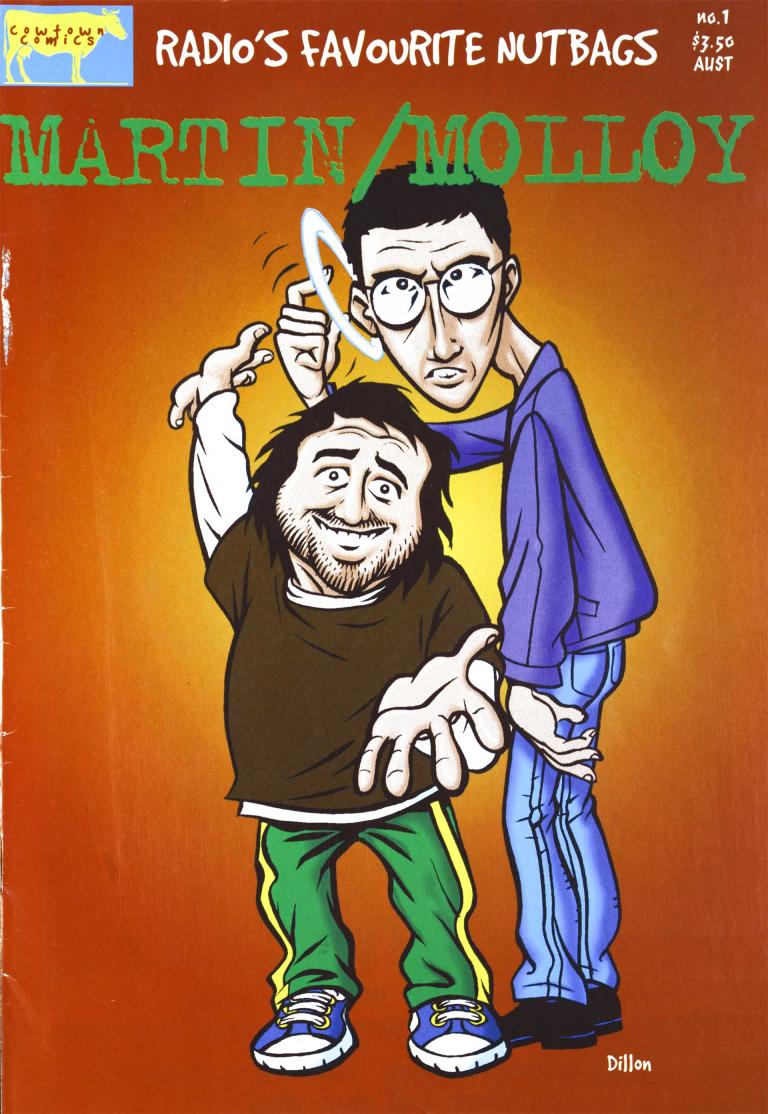
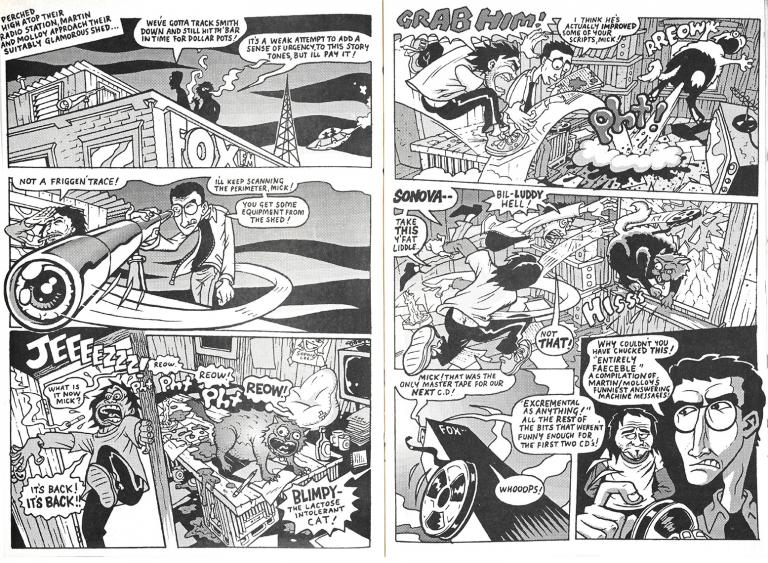
The National Film and Sound Archive of Australia acknowledges Australia’s Aboriginal and Torres Strait Islander peoples as the Traditional Custodians of the land on which we work and live and gives respect to their Elders both past and present.
